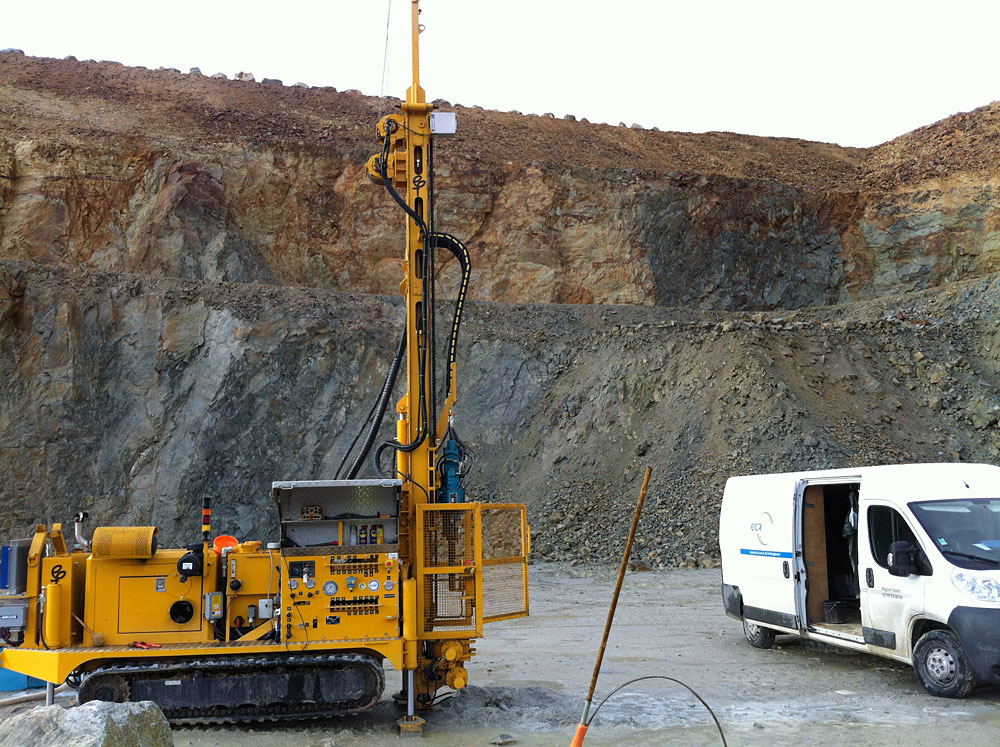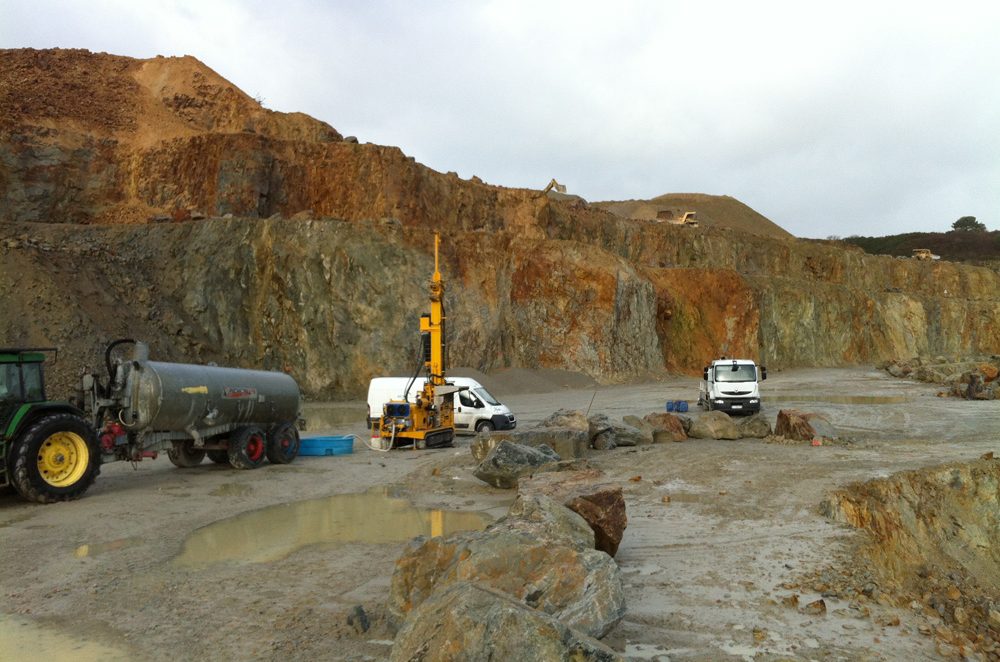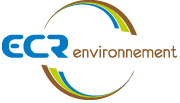Geotechnical studies, soil studies
The understanding of the subsoil plays a vital role in building construction, civil engineering and infrastructure development.
Specialized in soil engineering and landscaping, ECR ENVIRONNEMENT strives to provide its knowledge, precision and objectivity regarding the constraints related to each project (be it complex geotechnical missions or soil studies before construction), from feasibility to acceptance.
ECR Environnement proposes and carries out G1, G2, G3 and G4 type geotechnical studies for the construction of infrastructure (energy production or redispatch centre, drinking water treatment or pumping station, water treatment plant, telecommunication tower, …) :
- Geological and hydrogeological survey
- Foundations presizing and sizing
- Geotechnical guidelines
- Validation of geotechnical hypotheses
- Monitoring and supervision of levelling works and geotechnical process
- Survey and control test before and after works
Means used for these geotechnical studies
The company uses its own technical resources to carry out the following works:
- Geological soundings, pressure meter and penetrometer tests
- Piezometer devices installation
- Permeability tests
- Compaction, deflection and load tests
- Laboratory analyses
- X, Y and Z records of survey points
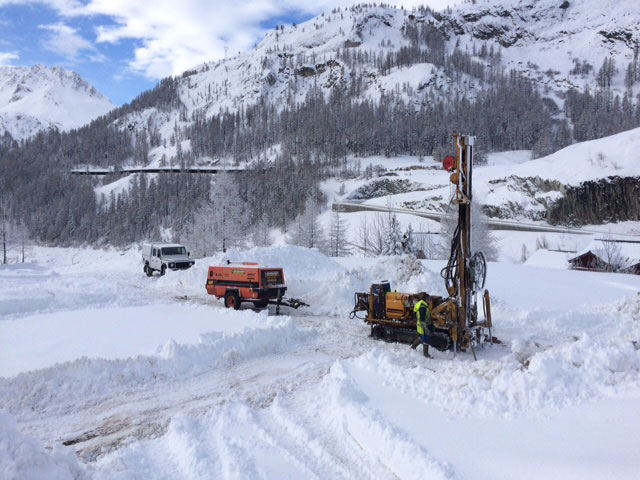
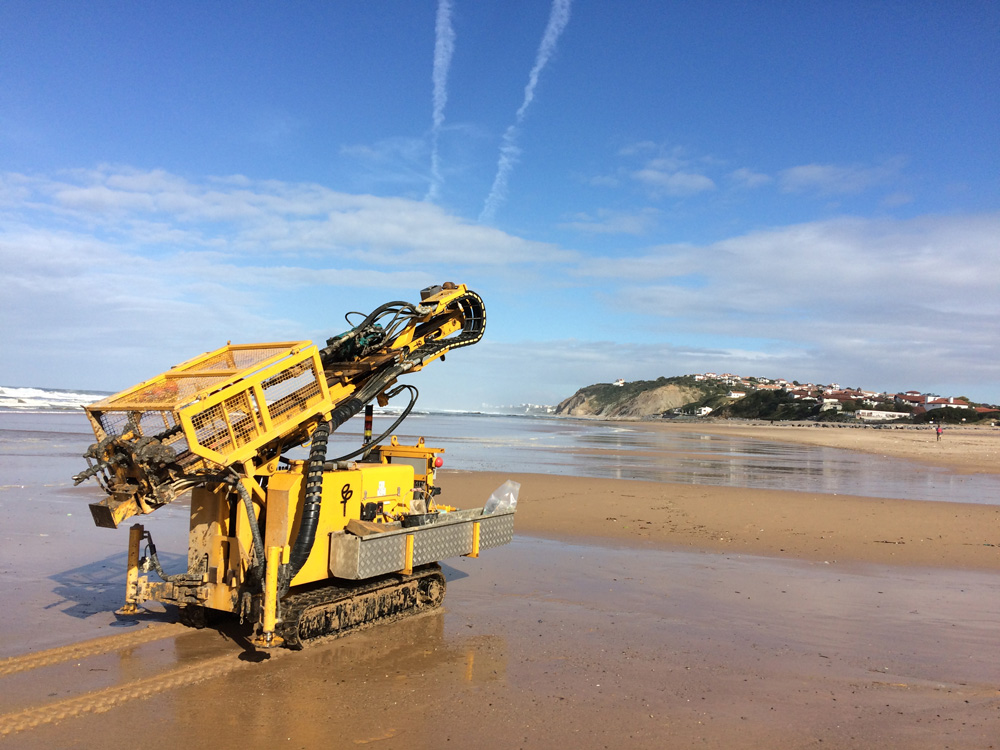
ECR Environnement proposes and carries out soil studies for the construction of collective housing and industrial buildings (G1, G2, G3, G4 and G5 missions):
- Geological and hydrogeological survey (maximum flood level)
- Buildings foundation and paving
- Precautions during levelling (drainage, support …)
- Works constraints
- Monitoring and control of levelling and foundation works
- Development method for roads and car parks (light vehicles and heavy trucks)
- Drainage
Means used to carry out these geotechnical studies
The company uses its own technical resources to carry out the following works:
- Geological soundings, pressure meter and penetrometer tests
- Piezometer devices installation
- Permeability tests
- Compaction, deflection and load tests
- Laboratory analyses (GTR-Proctor identification and IPI) – (NT: GTR = road levelling guide / IPI = immediate floor load capacity index)
- X, Y and Z records of survey points
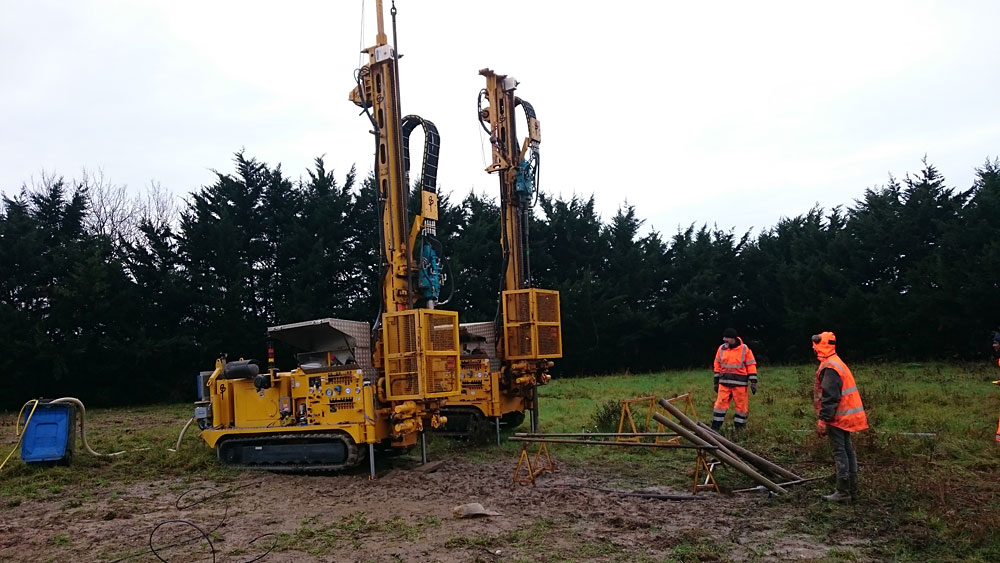

ECR Environnement proposes and carries out soil studies before the development of residential areas and commercial zones (G1, G2, G3, G4 and G5 geotechnical missions):
- Geological and hydrogeological survey
- Buildings foundation and paving
- Development method for roads and car parks (light vehicles and heavy trucks)
- Monitoring and control of levelling and foundation works
- Feasibility of networks and rainwater drainage works (retention pond, valley gutter, infiltration trench)
- Autonomous sanitation
Means implemented for these soil studies
The company uses its own technical resources to carry out the following works:
- Geological soundings, pressure meter and penetrometer tests
- Piezometer devices installation
- Permeability tests
- Compaction, deflection and load tests
- Laboratory analyses (GTR-Proctor identification and IPI) – NT: GTR = road levelling guide / IPI = immediate floor load capacity index
- X, Y and Z records of the survey points
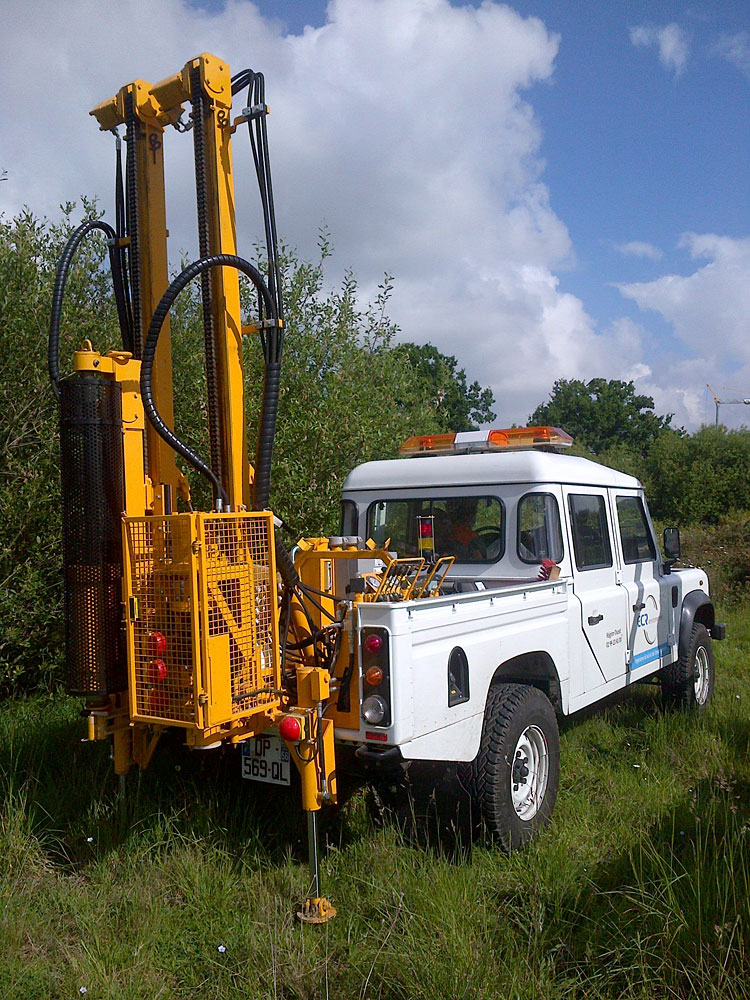
ECR Environnement proposes and carries out soil studies (G2 geotechnical mission) prior to the construction of individual houses.
Our geotechnical mission aims to:
- specify the site geological and hydrogeological context,
- identify geotechnical risks (expansive clays, seismicity, flooding),
- recommend special techniques to implement, especially in case of adjoining buildings, basement, steep slope, …
- assess the mechanical characteristics of soils,
- specify the type of foundations worth considering,
- present an example of the considered foundations pre-sizing
- study the paving feasibility and implementing methods,
- evaluate the necessary technical precautions during the works (levelling, clean-up, substitutions, water-proof state, drainage, …).
Means available for these soil studies
The company uses its own technical resources to carry out the following works:
- Geological soundings,
- Pressure meter and penetrometer tests,
- Laboratory tests in case of soil presenting a risk of liquefaction and/or geotechnical hazard (expansive clay).
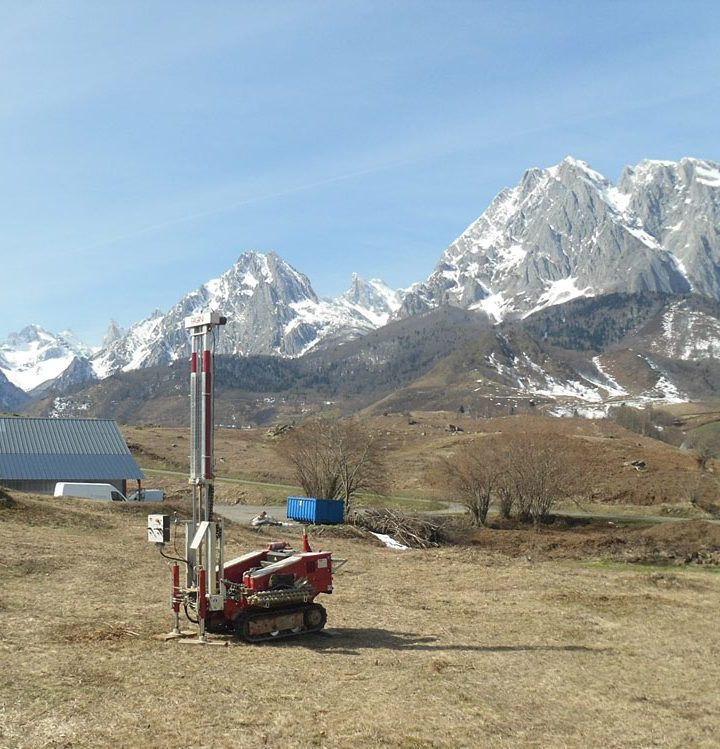
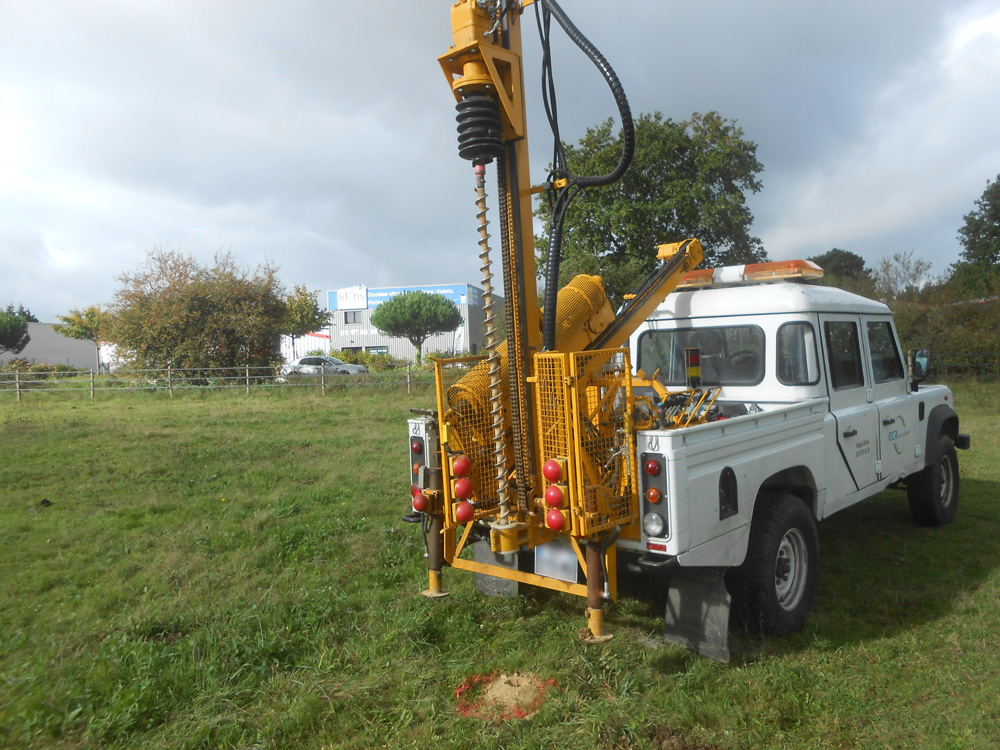
ECR Environnement carries out soil studies (G1 and G2 geotechnical missions) for the realization of directional drillings under works (roads, railroads, rivers …) making it possible to deal with execution difficulties:
- Geology
- Hydrogeology
- Compactness of grounds
Our geotechnical missions include the following services:
- Drawing up and follow-up of the DICT (Declaration of the intention to begin work) for implementation of secure soundings
- Geological soundings, pressure meter and penetrometer performance
- Piezometer device installation
- X, Y and Z records of survey points
- Preparation of the synthesis report
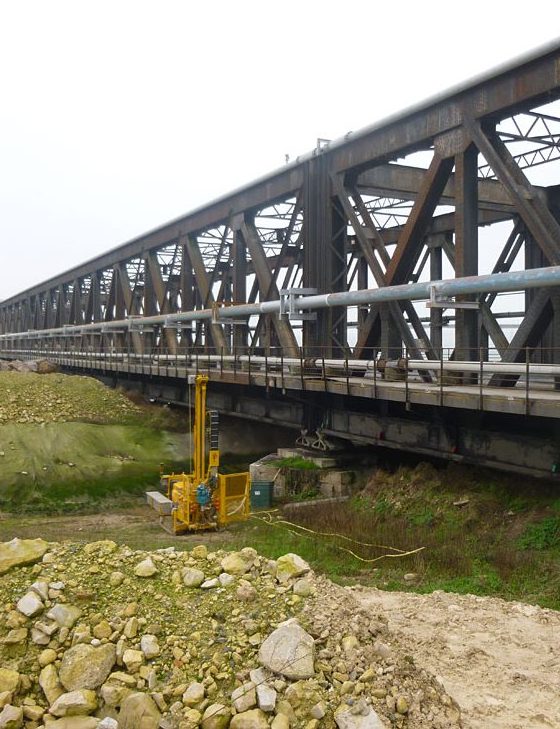
ECR Environnement carries out geotechnical studies (G1 and G2 geotechnical missions) for the undergrounding of networks (electric, gas, drinking water, waste water …), to define:
- Geological and hydrogeological context
- Sites nature and compactness
- Corrosiveness of soils
- Extraction conditions of materials and their reuse
- Recommendations for backfilling (laying bed, compaction …)
Geotechnical missions that can be performed
- Geological soundings, pressure meter and penetrometer tests
- Piezometer devices installation
- Geophysical campaigns (ground-penetrating radar, electro-magnetic, electric profiles …)
- Corrosiveness analyses in laboratory (complete road levelling guide, pH, resistivity)
- X, Y and Z records of survey points
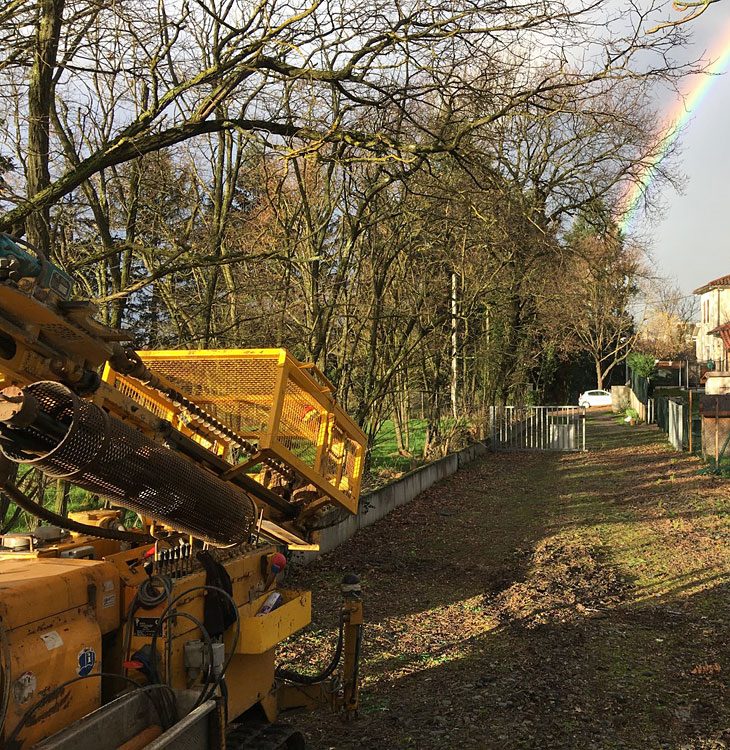
ECR Environnement carries out « geotechnical diagnosis (G5 mission) » soils studies to identify the geotechnical causes of a disaster on works. To be determined:
- Building structure
- Type and geometry of foundations and paving
- Geological and hydrogeological context
- Sites nature and compactness
- Soils tendency to the shrinkage-swelling phenomenon
Geotechnical missions that can be realized
- Geological soundings, pressure meter and penetrometer tests
- Piezometer devices installation
- Foundations recognition excavations and slab coring
- Special foundation recognition via geophysical method (impedance, seismic parallel …)
- Laboratory analyses (complete road levelling guide, Atterberg limits, water profile …)
- X, Y and Z records of survey points
- Crack monitoring gauge installation
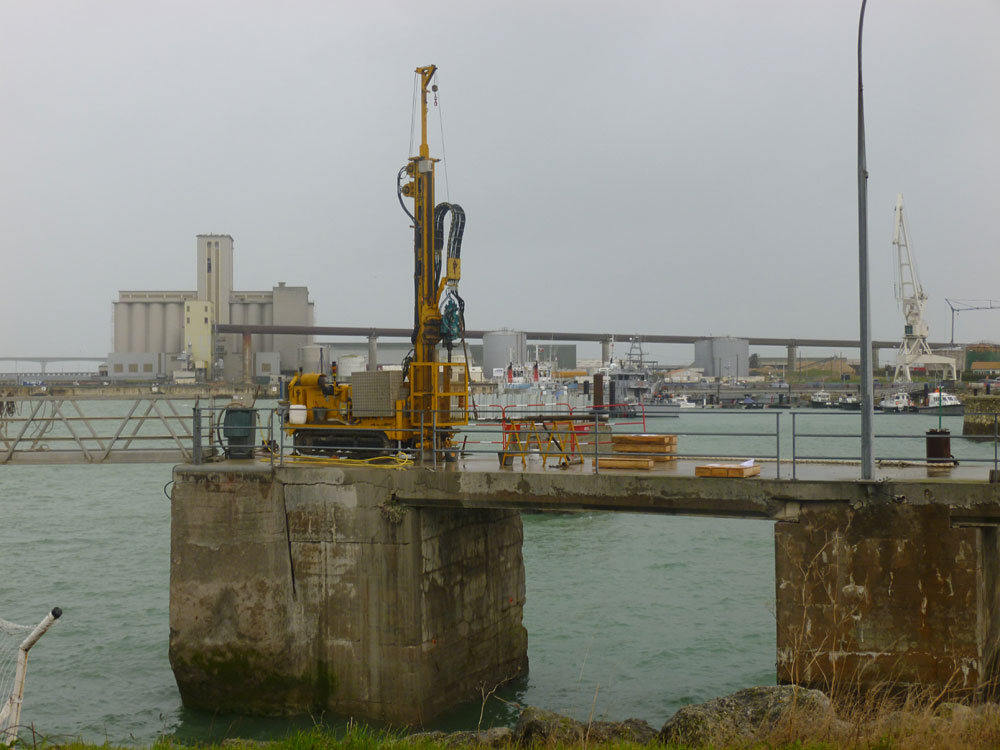
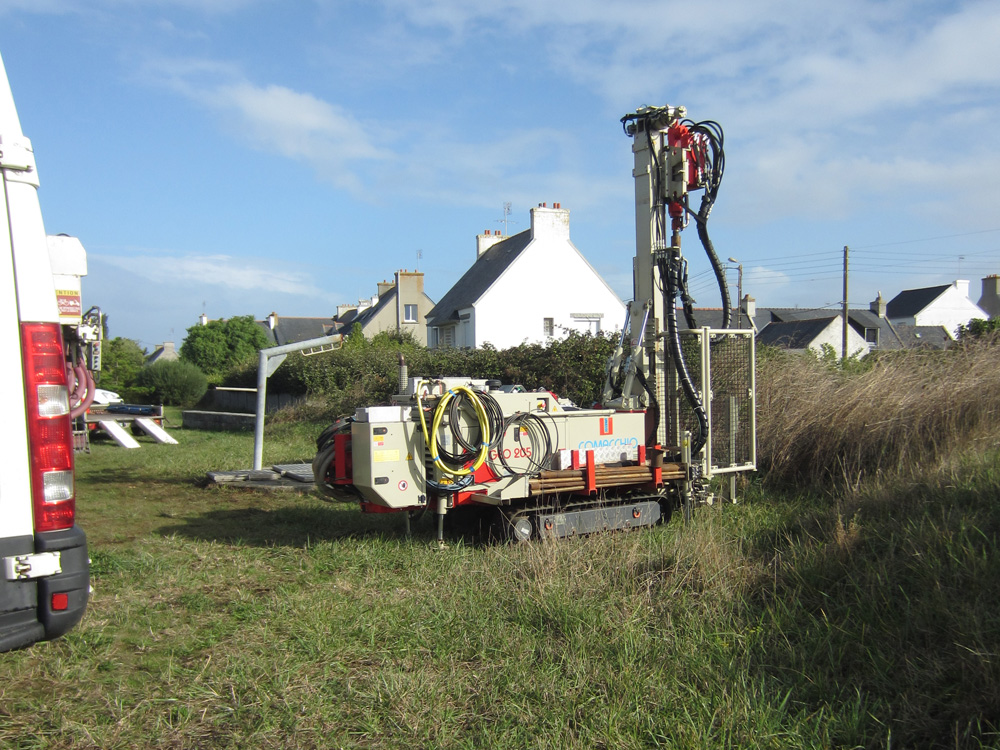
ECR Environnement owns a laboratory and carries out, with its own technical means:
- granulometric analyses (NF P 94-056 and NF P 94-057),
- methylene blue value measurements (NF P 94-068),
- water content measurements (NF P 94-050),
- Atterberg limits determinations (NF P 94-051),
- determinations of the standard and modified Proctor Optimum (NF P 94-093),
- determinations of the immediate strength index (NF P 94-078),
- pH and resistivity measurements (NF T 90-008 and ISO 11265).
ECR Environnement’s laboratory takes action either in addition to geotechnical studies, thus offering an optimization of studies deadlines or independently with companies or local authorities.
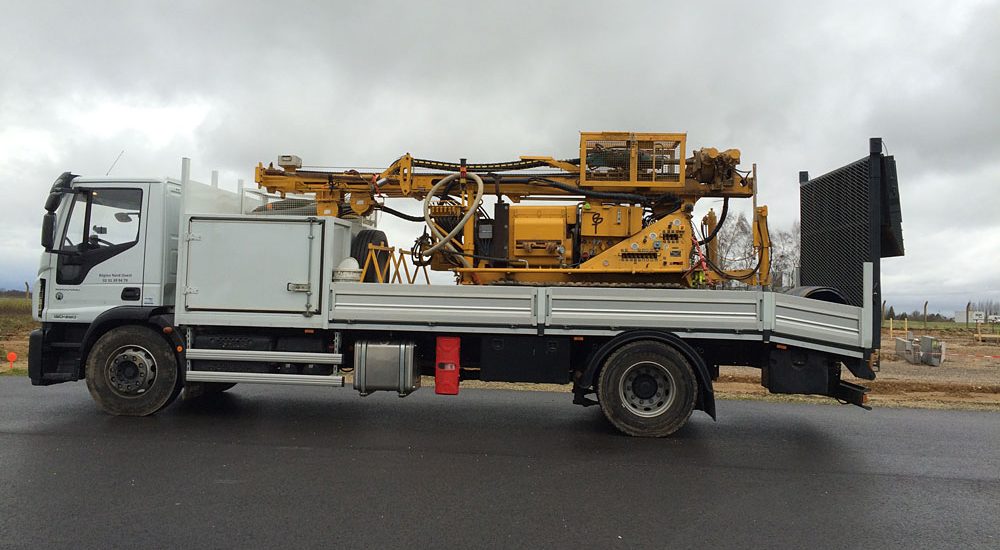
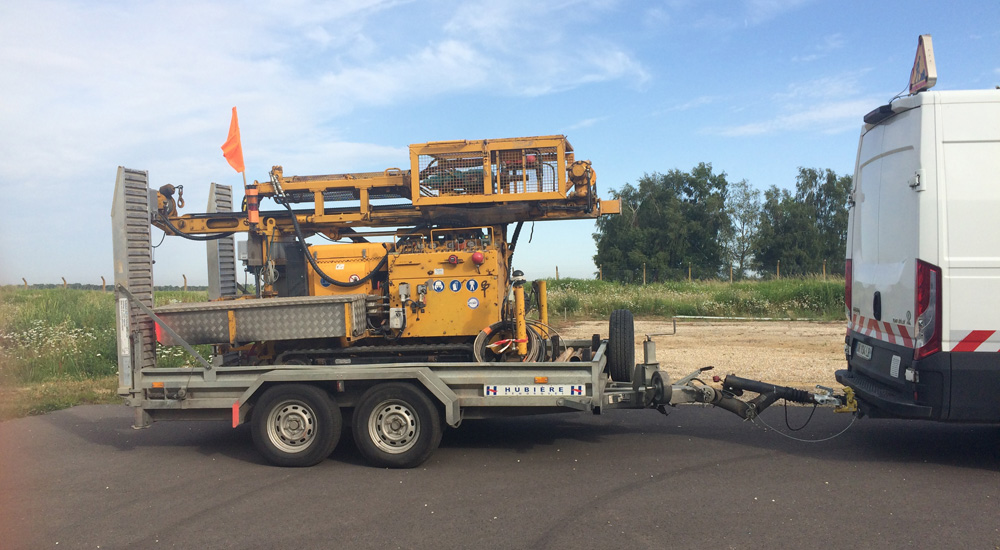
ECR Environnement carries out the study, control and supervision of G3, G4 and G5 geotechnical works execution for all types of works and development projects:
- Validation of geotechnical hypotheses
- Geotechnical guidelines
- Levelling monitoring and supervision
- Follow-up and supervision of geotechnical works execution
- Survey and control test before and after works
- Compaction control
- Geotechnical diagnosis (existing roads, geotechnical expertise on damaged works …)
Technical means for these geotechnical missions
With its own technical means, ECR Environnement carries out:
- Geological soundings, pressure meter and penetrometer tests
- Coring (pavement, paving, foundations …)
- Recognition of foundations on existing buildings
- Compaction, deflection and load tests
- Laboratory analyses (road levelling guide identification, Proctor and IPI – immediate floor road capacity index)
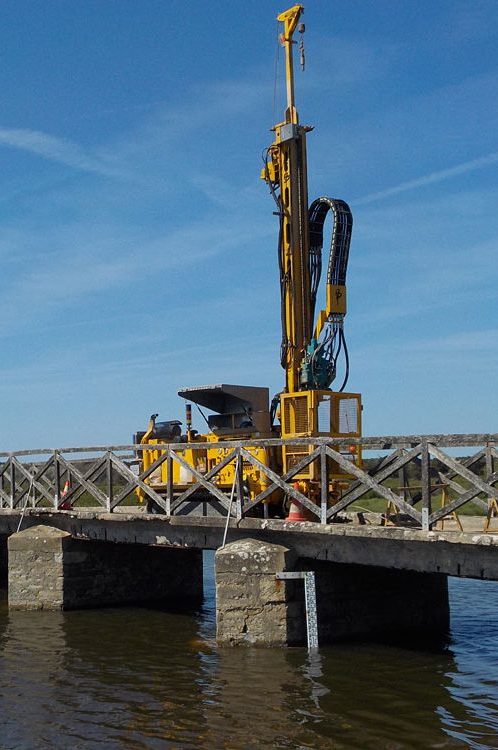
ECR Environnement carries out soil surveys with geological soundings and geotechnical studies for quarries when prospecting for new extraction sites as well as for extensions or soundings for mining:
- Geological and hydrogeological survey,
- Sampling for intact sample collection using traditional corer, wire corer, threshing samplers,
- Destructive auger or rotary percussion soundings, down-the-hole or out-of-the-hole hammers, and data recording,
- Pressure meter and dynamic penetration tests,
- Soundings for the installation of temporary piezometric devices,
- X, Y and Z records of survey points.
ECR Environnement relies on qualified staff and adapted technical means; for well logging services after coring and geophysical prospecting, ECR Environnement uses specialized subcontractors.
